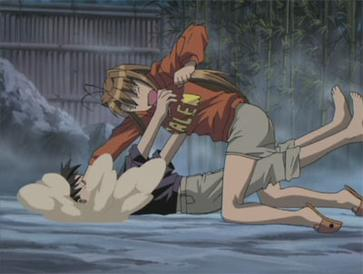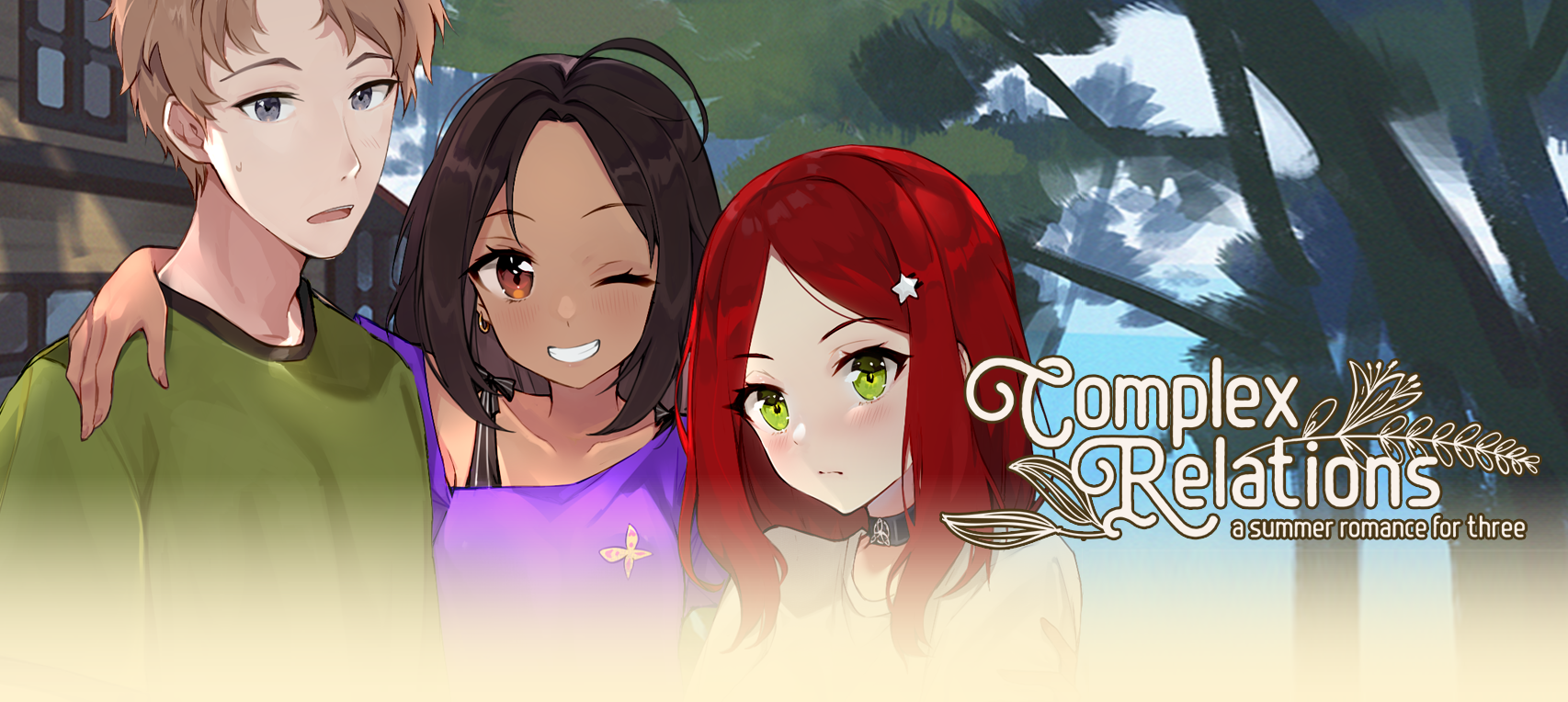Realism and surprising familiarity
It's been a while since I last wrote one of these up, but I wanted to delve a bit deeper into a subject related to the last couple of devlogs. What does it mean for characters to feel believable or realistic?
There's more than one way to look at this question. One straightforward take is that characters should feel realistic or believable if they only say or do things which people might actually do in real life. A lot of fiction features content which veers way off into the realms of cartoonish impossibility, so under this perspective, realism is simply a function of not doing that.

Subtract enough of this, and you end up with realism.
This might describe
what some audiences are looking for in "realistic"
narratives, but there's obviously some depth this idea fails to
capture. There are definitely ways that some stories or characters
can feel more "realistic" than others, even if they all
stick within the realms of the mundane. So, what exactly goes into
cultivating that sort of sense of realism?
Probably the most
obvious element is, things should happen and characters should behave
in the sort of ways we'd expect to actually happen in real life. Even
if it could technically happen, most people have an intuitive sense
that a girl accidentally exposing herself to a boy over and over, and
beating him up each time, until after a hundred episodes or so worth
of mishaps she realizes she's in love with him, is... not entirely
ordinary human behavior.

He marries this woman.
Some people take this as a weakness of works attempting to cultivate
a sense of realism. After all, weird or exaggerated behaviors can be
fun and colorful. In contrast, totally normal behavior is, well...
normal, right? Not necessarily gripping, on the face of things. This
is why the next, less obvious but crucial element of realism is
surprise.
When you've seen a hundred anime girls defend their dignity from their love interests with unchained violence, it feels a bit less like a uniquely characterizing behavior. But one of the essential features of real life is that it doesn't have to rehash the same ideas over and over. Real people have their own unique traits, thoughts and motivations, and aren't obligated to go through the same motions as other people just because they can only think to do things that have already been tried before. For that matter, real people tend to like to feel unique, and if they notice themselves becoming living cliches, often make deliberate efforts to avoid that. Because real life can so often catch us off guard, there's a sense of lifelike quality which comes from fiction which feels plausible, but manages to hit notes we don't expect.
Put these two elements together, and you get a sense of surprising familiarity, things which feel real and appropriate to the audience in ways they wouldn't have expected. At least a bit of originality helps to keep a work from hitting all the same notes we've become accustomed to as things we expect to happen in a work of fiction, so the quality of not feeling like a copy can be an essential element of realism.
In order to cultivate this feeling, you have to feature things which audiences can connect to their own experience, but weren't expecting in a work of fiction. That can work on any level from major plot twists to how a character thinks about picking out their clothes.
Here's a potentially controversial piece of advice which I'd draw from this: if EVN writers want to cultivate a sense of realism in their works, more of them should consider not setting their games in Japanese high schools. Because the writers have never actually been to Japanese high school, it creates a pressure to base depictions of the characters and environment on what they've seen in other works of fiction, not their own experience, so they have less freedom to incorporate things which audiences will find both believable and surprising.
So, does surprising familiarity sum up the essence of character realism? Well, no. It's mostly separate from the issue of actual character depth, but that's a subject that deserves its own discussion and its own time.
Get Complex Relations
Complex Relations
A hot summer romance for three
| Status | In development |
| Author | Amai Works |
| Genre | Visual Novel |
| Tags | 2D, Anime, Coming Of Age, Erotic, relationship, Ren'Py, Romance |
| Languages | English |
More posts
- Complex Relations updated demo release66 days ago
- Complex Relations currently live on Kickstarter!Dec 24, 2021
- Kickstarter Launch Date SetDec 15, 2021
- Variable sex scenesOct 02, 2021
- Back on track for launchSep 26, 2021
- Delay to Kickstarter LaunchJun 01, 2021
- Moving towards KS launchMay 10, 2021
- Writing SexMay 02, 2021
- Update: KS video now in developmentApr 15, 2021

Comments
Log in with itch.io to leave a comment.
These write-ups are consistently great. I had a blast with the demo but it's reading how much thought is clearly being put into this project that really has me sold. Can't wait to pledge towards the full game!